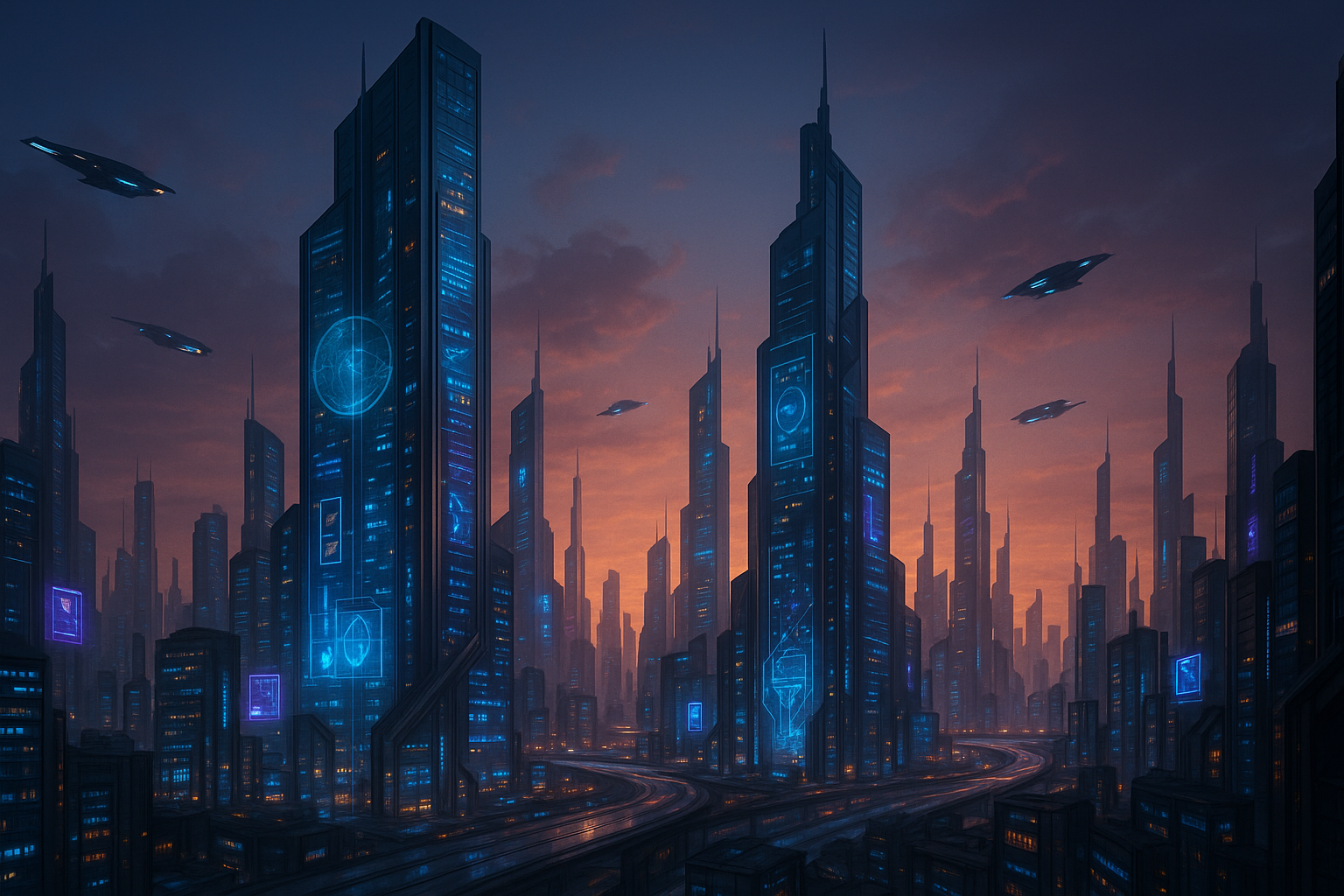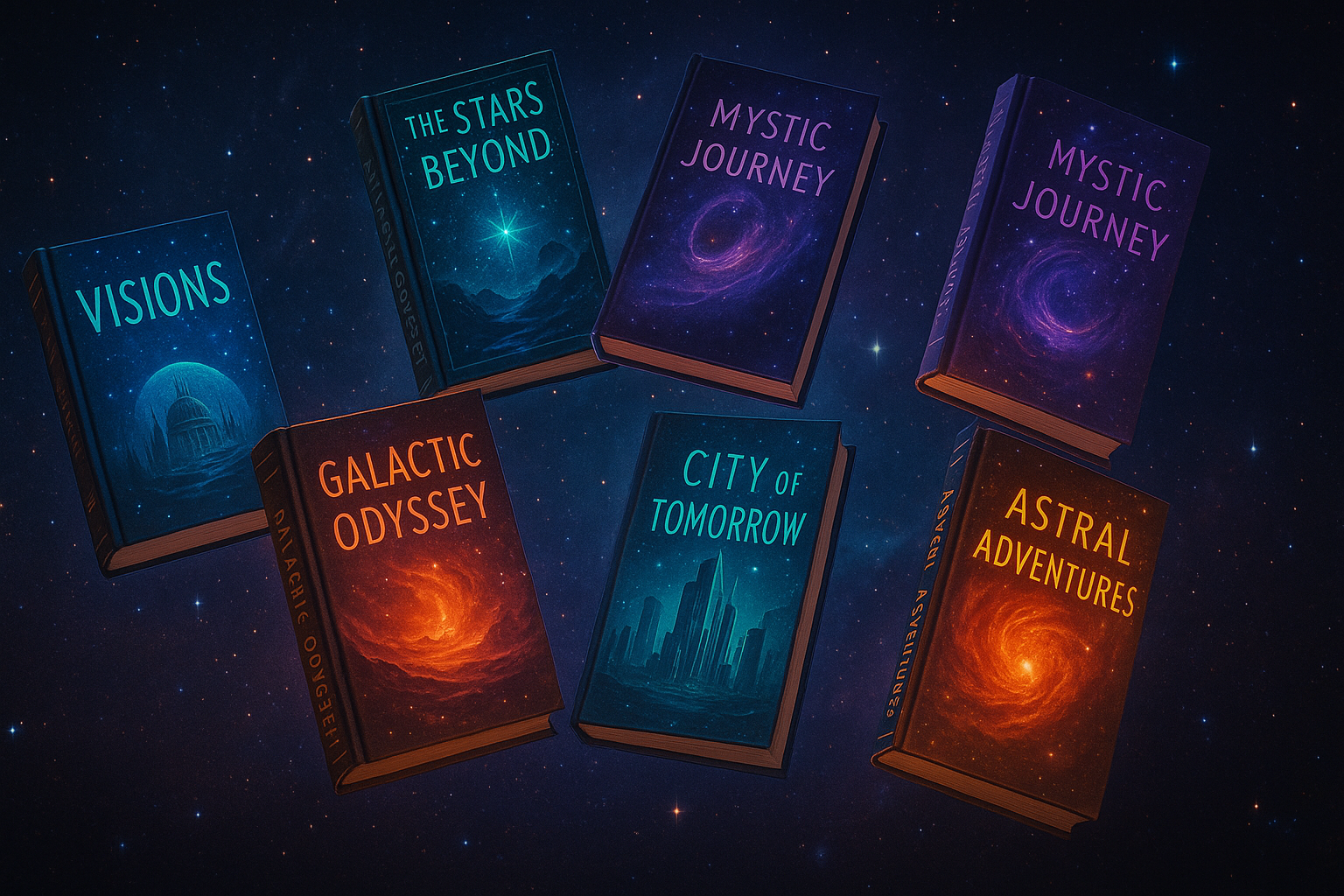
The quantum realm has become fertile ground for science fiction's most mind-bending narratives.
In the last two decades, quantum physics has evolved from a niche scientific curiosity to the driving force behind some of science fiction's most compelling narratives. From Hugh Everett's many-worlds interpretation to the mysterious nature of quantum consciousness, authors are mining the deepest mysteries of physics to create stories that challenge our understanding of reality itself.
What makes quantum mechanics so irresistible to science fiction writers? Perhaps it's the fact that quantum physics already reads like science fiction. Particles that exist in multiple states simultaneously, information that travels faster than light through quantum entanglement, and the observer effect that suggests consciousness plays a fundamental role in shaping reality—these concepts sound like they were pulled from the pages of a speculative novel.
The Quantum Revolution in Literature
The integration of quantum mechanics into science fiction represents more than just scientific window dressing. Authors like Greg Bear, Liu Cixin, and Blake Crouch have demonstrated how quantum concepts can serve as the foundation for profound explorations of identity, reality, and human consciousness.
Consider the concept of quantum superposition—the idea that particles can exist in multiple states until observed. This principle has given birth to narratives where characters exist in multiple realities simultaneously, where decisions branch into infinite possibilities, and where the act of observation itself becomes a plot device. In these stories, the protagonist isn't just navigating a single timeline but wrestling with the implications of infinite selves across infinite universes.
"Quantum mechanics doesn't just provide science fiction with new gadgets—it offers entirely new ways of thinking about existence, consciousness, and the nature of reality itself."
Popular Quantum Concepts in Modern Sci-Fi
Many-Worlds Interpretation
Perhaps no quantum concept has captured the imagination of science fiction writers more than the many-worlds interpretation. This theory suggests that every quantum measurement splits the universe into multiple branches, each representing a different outcome. Authors have used this concept to explore parallel universes, alternate histories, and the profound question of whether our choices matter if infinite versions of ourselves are making different decisions.
Quantum Entanglement
Einstein famously called quantum entanglement "spooky action at a distance," and science fiction has embraced this spookiness wholeheartedly. Entangled particles remain connected regardless of the distance between them, instantly sharing information across vast cosmic distances. This phenomenon has become the basis for faster-than-light communication systems, telepathic connections between characters, and even romantic relationships that transcend space and time.
Quantum Consciousness
The relationship between consciousness and quantum mechanics remains one of physics' greatest mysteries, making it perfect fodder for speculative fiction. Some theories suggest that consciousness itself might be a quantum phenomenon, leading to stories where minds can be transferred between bodies, where thoughts can influence reality at the quantum level, and where the boundary between observer and observed becomes meaningless.
Transforming the Art of Storytelling
Quantum physics hasn't just provided science fiction with new plot devices—it's fundamentally changed how stories can be structured. Traditional narrative assumes a linear progression of cause and effect, but quantum mechanics suggests a universe where causality itself might be more fluid.
This has led to experimental narrative structures where stories branch and merge like quantum possibilities, where readers might encounter multiple versions of the same scene representing different quantum outcomes, and where the act of reading itself becomes part of the story's quantum observation.
Authors are also using quantum uncertainty as a metaphor for the human condition. Just as quantum particles exist in states of uncertainty until measured, characters in quantum-inspired fiction often exist in states of emotional or existential uncertainty until forced to make definitive choices.
Bridging Science and Imagination
What's particularly exciting about the current wave of quantum-inspired science fiction is how closely it hews to actual scientific theory. Unlike the handwaving of earlier sci-fi eras, today's authors are doing their homework, consulting with physicists and incorporating real quantum mechanical principles into their narratives.
This scientific grounding doesn't limit creativity—it enhances it. By working within the constraints of actual quantum theory, authors are forced to find innovative solutions and explore implications that pure fantasy couldn't achieve. The result is science fiction that feels both fantastical and plausible, stories that stretch the imagination while remaining tethered to scientific possibility.
The Future of Quantum Fiction
As our understanding of quantum mechanics continues to evolve, so too will its influence on science fiction. Emerging concepts like quantum computing, quantum biology, and quantum gravity are already beginning to appear in speculative literature, promising new avenues for exploration.
Perhaps most intriguingly, as quantum technologies begin to enter everyday life—from quantum computers to quantum cryptography—the line between science fiction and science fact continues to blur. Today's quantum fiction might well be tomorrow's quantum reality.
The rise of quantum physics in science fiction represents more than a trend—it's a fundamental shift in how we tell stories about the nature of reality. In a universe where particles can be in multiple places at once, where observation changes reality, and where consciousness might play a fundamental role in shaping existence, the possibilities for storytelling are truly infinite.
The Quantum Leap Forward
As we stand on the brink of the quantum age, science fiction serves as both prophet and guide, helping us imagine the implications of a quantum future. The stories being written today don't just entertain—they prepare us for a world where the strange rules of quantum mechanics might become as familiar as the laws of gravity.


